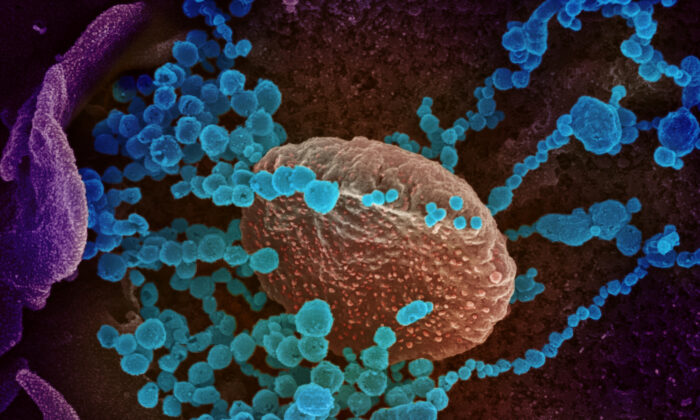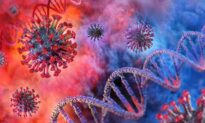- Joined
- Mar 31, 2020
- Messages
- 9,153
- Points
- 113
Singapore reports first likely COVID-19 re-infection after Bangladeshi dorm resident tests positive again
www.channelnewsasia.com
SINGAPORE: A resident of a migrant worker dormitory has become Singapore’s first likely case of COVID-19 re-infection, the Ministry of Health (MOH) said on Saturday (Feb 6).
The case is a 28-year-old Bangladeshi work permit holder who lives in a dormitory at 43 Tech Park Crescent.
He was confirmed to have the coronavirus on Apr 12 last year, and on Jan 25 this year, he tested positive again.
"He was identified from rostered monitoring testing conducted as part of MOH’s surveillance of recovered workers to monitor their postinfection immunity," said the ministry.
When the man was confirmed to have had COVID-19 last year, he was identified as Case 2513 and was part of the cluster of infections at Tech Park Crescent dormitory, which is located at 43 Tech Park Crescent.
He recovered from that infection and tested negative for COVID-19 from last June onwards.
However, the man tested positive for COVID-19 once again on Jan 25 this year and he was isolated. "Numerous repeat tests conducted subsequently were also positive for the virus," said MOH on Saturday.
The man's new infection was not previously stated in the ministry's situation reports. CNA has sought further information from MOH.
In its press release on Saturday, MOH said the man reported feeling unwell on Jan 22 and 23, but was otherwise asymptomatic.
He is currently warded at the National Centre for Infectious Diseases (NCID) and all his identified close contacts have been isolated and quarantined. None have tested positive for COVID-19 so far.
“While re-infection is rare, the expert panel, which comprises infectious diseases and microbiology experts from NCID, Singapore General Hospital and the National Public Health Laboratory, has assessed that the clinical and laboratory evidence suggests that this is a likely case of re-infection,” MOH said.
“In addition to his positive polymerase chain reaction (PCR) test results, there was a corresponding marked increase in antibody titres compared to the period prior to the likely re-infection, suggesting that he was exposed to a new infection which boosted his antibody levels.
“The virus detected in his samples taken in January 2021 is also genetically distinct from that associated with the dormitories outbreak in 2020, suggesting that this is likely a different and new infection.”
MOH said it will continue to monitor recovered COVID-19 cases to determine their post-infection immunity. No significant loss of post-infection immunity has been detected among recovered workers in dormitories so far.
www.channelnewsasia.com
SINGAPORE: A resident of a migrant worker dormitory has become Singapore’s first likely case of COVID-19 re-infection, the Ministry of Health (MOH) said on Saturday (Feb 6).
The case is a 28-year-old Bangladeshi work permit holder who lives in a dormitory at 43 Tech Park Crescent.
He was confirmed to have the coronavirus on Apr 12 last year, and on Jan 25 this year, he tested positive again.
"He was identified from rostered monitoring testing conducted as part of MOH’s surveillance of recovered workers to monitor their postinfection immunity," said the ministry.
When the man was confirmed to have had COVID-19 last year, he was identified as Case 2513 and was part of the cluster of infections at Tech Park Crescent dormitory, which is located at 43 Tech Park Crescent.
He recovered from that infection and tested negative for COVID-19 from last June onwards.
However, the man tested positive for COVID-19 once again on Jan 25 this year and he was isolated. "Numerous repeat tests conducted subsequently were also positive for the virus," said MOH on Saturday.
The man's new infection was not previously stated in the ministry's situation reports. CNA has sought further information from MOH.
In its press release on Saturday, MOH said the man reported feeling unwell on Jan 22 and 23, but was otherwise asymptomatic.
He is currently warded at the National Centre for Infectious Diseases (NCID) and all his identified close contacts have been isolated and quarantined. None have tested positive for COVID-19 so far.
“While re-infection is rare, the expert panel, which comprises infectious diseases and microbiology experts from NCID, Singapore General Hospital and the National Public Health Laboratory, has assessed that the clinical and laboratory evidence suggests that this is a likely case of re-infection,” MOH said.
“In addition to his positive polymerase chain reaction (PCR) test results, there was a corresponding marked increase in antibody titres compared to the period prior to the likely re-infection, suggesting that he was exposed to a new infection which boosted his antibody levels.
“The virus detected in his samples taken in January 2021 is also genetically distinct from that associated with the dormitories outbreak in 2020, suggesting that this is likely a different and new infection.”
MOH said it will continue to monitor recovered COVID-19 cases to determine their post-infection immunity. No significant loss of post-infection immunity has been detected among recovered workers in dormitories so far.







